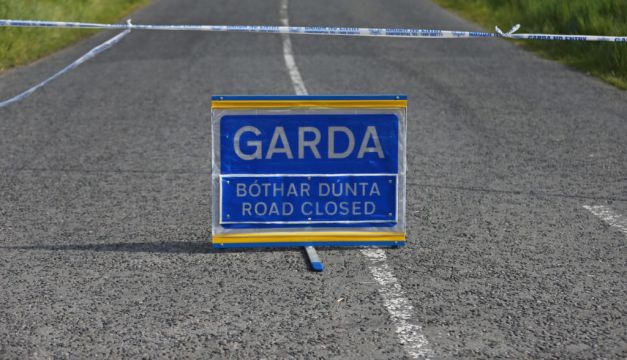A total of 184 people died in 173 road traffic collisions in the State during 2023, according to provisional figures from the Road Safety Authority (RSA).
The figure showed an increase of 19 per cent on the previous year, when 155 deaths occurred in 149 collisions.
Similar to 2022, there was a high proportion of male fatalities, while there was also a continued rise in pedestrian fatalities and the number of crashes taking place at night.
The RSA's analysis of provisional fatal collision reports from Gardaí showed 78 per cent of those killed on the roads last year were male.
By age, the RSA found people aged 16-25 represented 26 per cent of last year's fatalities. In 2023, the age group saw 47 people killed in road traffic collisions, a sharp increase on 2022's figure of 25.
Compared to the previous year, fatalities were up across the five youngest age categories; 0-15, 16-25, 26-35, 36-45 and 46-55. Deaths among people in the three remaining cohorts (56-65, 66-74 and 75+) fell during the year.
Tipperary saw the highest number of road deaths in 2023, with 16, followed by Cork and Dublin, which each had 15.
Longford had the lowest number of road fatalities, two, while Wexford, Waterford, Leitrim, Laois and Kildare each had three.
Sixty-nine of those killed were drivers of a vehicle involved in the collision, with the next highest number of fatalities noted among pedestrians (44). Vehicle passengers accounted for 34 road deaths during the year, followed by motorcyclists (26), cyclists (eight) and e-scooter users (three).
Almost half of fatalities occurred in collisions between 8pm and 8am, up from 35 per cent in 2022.
May, August and October had the highest number of road fatalities, with 20, 26 and 23 respectively, while June (10) and September (nine) had the fewest.
"It is with great sadness that we acknowledge the tragic loss of life on Ireland’s roads in 2023," RSA chairperson Liz O'Donnell said.
"We have had a difficult year in road safety. People are carrying huge grief with them; a grief that doesn’t go away and a void that cannot be filled in their lives. Any one life lost is one too many."
She added: "We must do more, and I welcome the proposed introduction of a National Strategy on Camera Based Enforcement which, I understand, will be prioritised in 2024.
"A National Strategy will ensure a consistent approach to the selection and use of the different forms of camera technologies as well as supporting the development of a roadmap for the rollout of camera-based enforcement and ensuring that enablers such as funding and other critical resources are identified."







